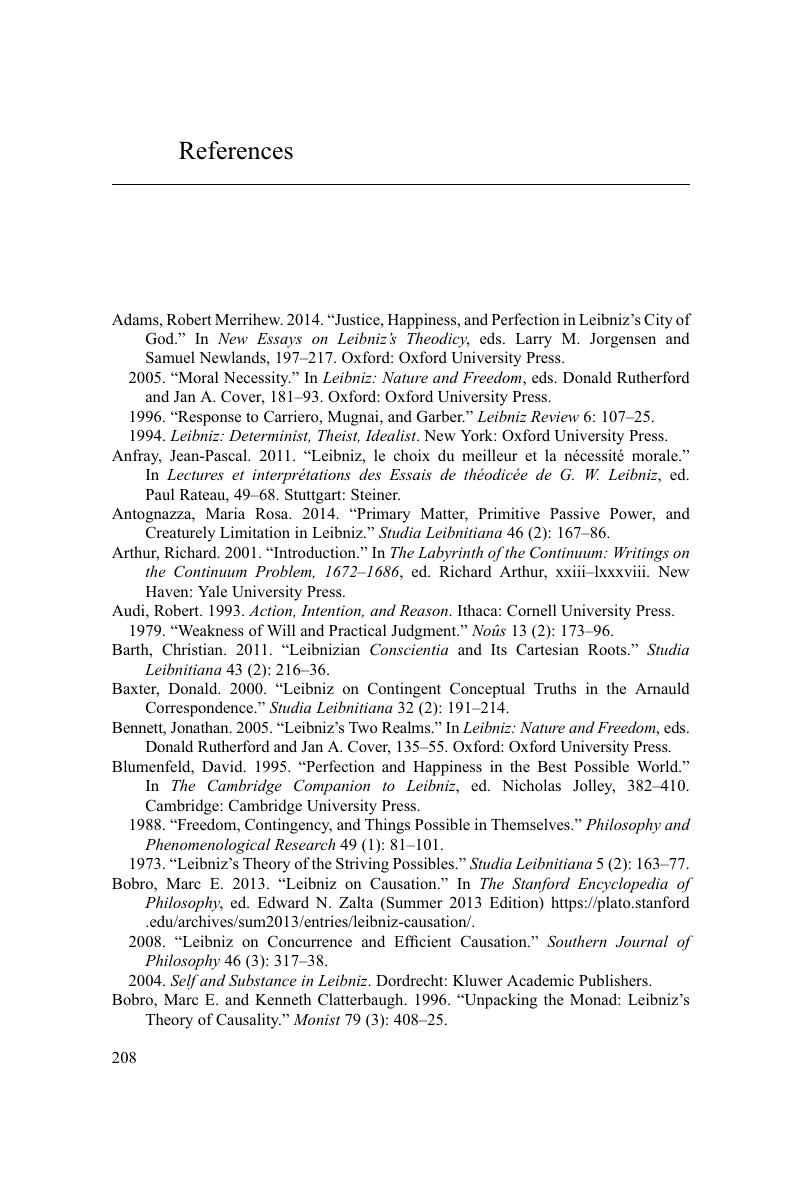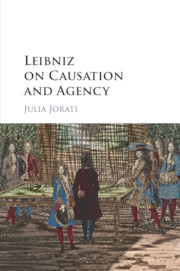Book contents
- Leibniz on Causation and Agency
- Leibniz on Causation and Agency
- Copyright page
- Contents
- Tables
- Acknowledgments
- Note on Translations and Citations
- Abbreviations
- Introduction
- 1 Monads and Their Actions
- 2 Spontaneity
- 3 Teleology
- 4 Attributability and Divine Concurrence
- 5 Freedom
- 6 Control, Weakness, and Compulsion
- 7 Moral Agency
- References
- Index
- References
References
Published online by Cambridge University Press: 05 July 2017
- Leibniz on Causation and Agency
- Leibniz on Causation and Agency
- Copyright page
- Contents
- Tables
- Acknowledgments
- Note on Translations and Citations
- Abbreviations
- Introduction
- 1 Monads and Their Actions
- 2 Spontaneity
- 3 Teleology
- 4 Attributability and Divine Concurrence
- 5 Freedom
- 6 Control, Weakness, and Compulsion
- 7 Moral Agency
- References
- Index
- References
Summary

- Type
- Chapter
- Information
- Leibniz on Causation and Agency , pp. 208 - 216Publisher: Cambridge University PressPrint publication year: 2017



